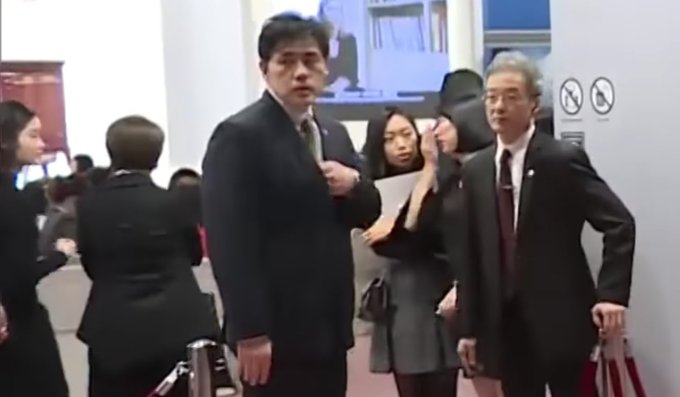Your Secrets Are Safe With Me
By Anthony Chen
Staff Writer
There is danger among us. Today, terms such as espionage, spying, and intelligence gathering seem to only be used in James Bond films, when it relates closer to us than we think. The average person can imagine handsome Hollywood-casted men, with beautiful women, fast cars, and explosions around the corner, when hearing these words in a phrase.
However, in reality, if you can identify the spy in the room, he or she is probably not very good at their jobs. Therefore, it is crucial to have an understanding that these threats are real and may even be closer than we think.
In January, former Central Intelligence Agency (CIA) officer, Jerry Chung Shing Lee, was arrested by U.S. authorities after arriving at John F. Kennedy Airport from Hong Kong, according to the Department of Justice. He was accused of spying for China after his journal was found with classified information back in 2012, while under FBI surveillance.
This was a major break in an ongoing investigation into the disappearance of 20 some informants in China, presumably executed or jailed for treason, reported BBC. Lee had previously served, for more than 10 years, as an intelligence officer at the CIA and had resigned his post due to a stalemate in promotion opportunities, according to agency colleagues. Since then, he worked for the Japan Tobacco International, where he was suspected of leaking information regarding investigations into counterfeiting and smuggling operations to mainland Chinese authorities.
This is not a new phenomenon. Over the past century, especially since the spark of the Cold War, espionage has been a regular practice used by almost all countries around the world. According to retired CIA officer and author, Jason Matthews, information in demand is categorized by 3 tiers: one is public policy or information that is revealed to the general people of a state’s intentions and goals.
The second is bilateral/multilateral policy, which are agreements and information exchanged exclusively between states. The third tier and most important are state secrets, and these are the guarded information of a state’s true intentions. State secrets are what spies target to strengthen their nation’s security measures by recruiting sources from within the targeted state to reveal information, in exchange for certain rewards or payments.
In 2010, 10 Russian “illegals” were arrested for espionage. These individuals were deeply embedded into American society and some posed as couples to strengthen their credibility. The more notable couple, Richard and Cynthia Murphy, lived in the suburban of Montclair, New Jersey with their 2 daughters.
It was revealed that their real names where Vladimir and Lydia Guryev and they reported information to the KGB and Russia’s new intelligence network, the SVR. One individual that some professors at Seton Hall University may recognize is Mikhail Semenko, because he graduated from our very own School of Diplomacy and International Relations, reports Telegraph. All ten spies were exchanged for a handful Soviet era/Russian assets imprisoned for aiding the U.K. and U.S. This incident inspired FX Network’s hit series, The Americans.
These are all major operational failures that made headlines while other emerging news of intelligence penetration has been buried under celebrity gossip. The Lee investigation is still further pending and it is unknown whether his motives were intentional or unintentional, reports the Washington Times.
Intentional means for a government employee to spy for a foreign intelligence service is usually a result of greed, pride, ambition, ethnic connection, and democracy/communism idealistic mindset. Unintentional means can be forced by threats, blackmail or finance of debt. A good intelligence officer will target all these weaknesses to recruit potential spies.
The most appealing and largest pool of people targeted today are students because they are young, naïve and usually lack strong character, and can be recruited into intentional espionage. Students are also vulnerable to being strong-armed or blackmailed, because of the expanding internet age or debt due to years of student loans, which places them in the unintentional category.
Therefore, it may be ideal for a student intern to take pictures of a few files in a congressional office, to pay for a semester of college or to buy some new threads. To combat these threats, there are improved security and counterintelligence measures for government agencies to protect itself.
Mr. Lee brought to light an issue that has long been discussed through whispers, reports SCMP. Today’s aspiring bearers of secrets are not prepared for what is to come. Hints from our past prove that it does not take much for someone to betray their country. With further research, one may find that spies have done it for far less than a large sum of money.
Although these unfortunate cases are out of our hands, what we can control is our own fate. Secrecy serves the interest of national security and the brave individuals that risk their lives to apprehend it. It is our duty to secure every aspect of our own lives, to block one more avenue of approach for our enemies to attain it.



